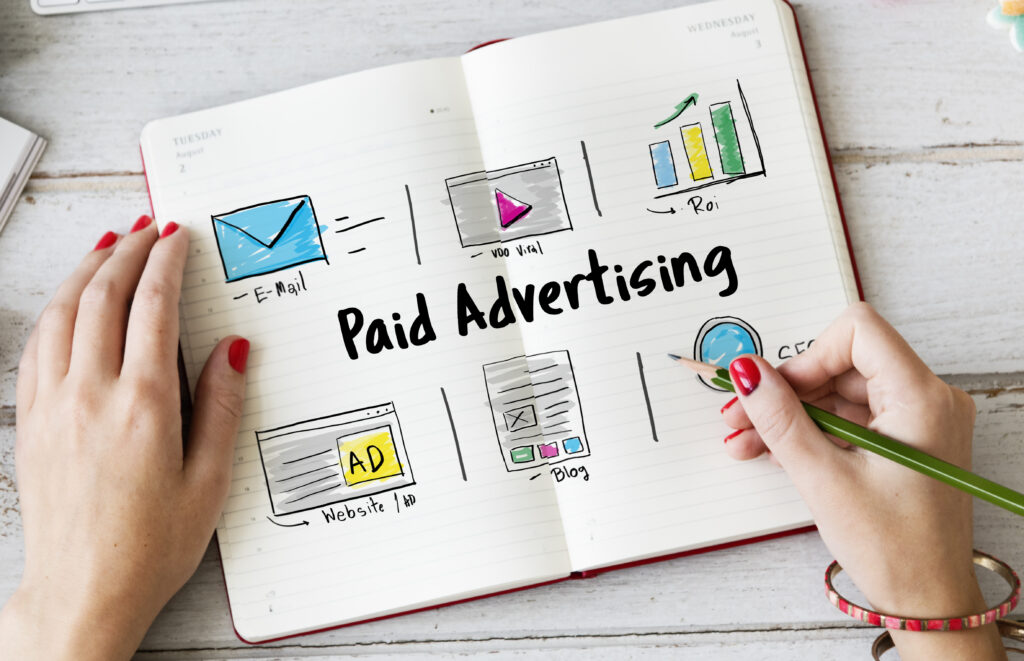Most businesses exist purely to be as profitable as possible, which means that their major goal is to bring new customers to their business. This is done, of course, through marketing. And while there are many ways to market your business, paid advertising is something you should seriously consider if you plan on scaling your business.
However, since paid advertising is, well, paid, that does beg the question of how much you should spend. And more importantly, is there a minimum that you should be spending on your paid ads?
I’ve run my own ad agency for many years, and we often need to turn people away because they just don’t have the money needed to make ads successfully work. The truth is that if you plan on doing paid ads, you won’t just be spending pennies – you will be investing a lot. But now, let’s get into it.
Is there a minimum budget?
If you’re expecting this to be a short blog post where I tell you that yes, there is a minimum marketing budget for paid ads, or no, there isn’t, you’re going to be disappointed. As with so many other business-related questions, there isn’t a clear-cut answer.
It’s nuanced, and it really does depend on so many factors. To really understand the “minimum” ad spend you need for paid ads, you need to understand how it all works.
That being said, a rule of thumb in my agency is that companies need to have a marketing budget of at least £2 000 per month if they want to successfully run ads, whether on Google or social media advertising services like Facebook or LinkedIn. That’s a very basic answer, so I’m going to dive a bit deeper now.

Why do we recommend having £2 000?
So, why £2 000? Is it an arbitrary number for a marketing budget? No. In order to run profitable ads, you need to be using data to see which ads are performing well and which ones aren’t. The well-performing ads can then be run for longer and you can continue to pump money into them, whereas you can cull under-performing ads.
If you have a tiny monthly ad spend, you won’t get the data you need. This amount is what we’ve found to be the tipping point where you get enough data and conversions to start optimising your ads well.
A realistic example
You might be wondering if I’m telling the truth. After all, I’m a random guy on the internet – why should you listen to me when I tell you to have such a big marketing budget as a starting point? And besides, didn’t I just say that I run a paid digital advertising agency? So my aim would be to make you spend as much money as possible, right?
I get that. So let’s break it down.
- Let’s say you have a smaller marketing budget, of £1 000, perhaps.
- Now, let’s say that on Google Ads your cost per click works out to £5 per click.
- Your £1 000 will be divided by that £5 CPC – so you’ll only be getting 200 clicks out of your money.
- Now let’s say that you want to run multiple campaigns: maybe you’re testing for three creatives and three audiences, which gives you nine campaigns.
- Those 200 clicks will then be divided by nine. 200/9 = 22.222.
- This means you’re only getting 22.22 clicks per ad campaign.
To put it simply, 22 clicks isn’t enough data for you to know which ad creative or audience is winning. It will take you months just to get those basic results, whereas a bigger monthly ad spend will give you substantially more data to work with.

Some platforms have their own limits
Aside from thinking about the minimum ad spend in terms of what you need to spend to see results, you also need to keep in mind that some ad platforms have their own minimum spend.
Facebook, for example, has a minimum spend of £5 per day at the ad set level in order to run ads. LinkedIn also has a minimum, although it differs depending on where you live. Therefore, you need to keep this in mind when setting up both your social media strategy as well as your advertising budget.
Algorithms like money (in other words: ad giants have the advantage)
You also need to remember that platforms like Google and Facebook also have algorithms that they use to show your ads to the right people. To do so, though, they need to have enough data.
In short: ad algorithms are only as smart as the data you give them, so if you want them to optimise your ads better, you need to give them more data – which means spending more money. The higher your advertising budget, the more these platforms will optimise your marketing campaigns.
It also depends on where you want to advertise
Remember the recommended minimum of £2 000 I mentioned earlier? Yeah, that’s not a one-size-fits-all scenario for your ad budget. If you want to advertise on one platform, then sure, that’s enough to get you started.
But if you want to advertise across more than one platform, I’d say you need more than £4 000. This is the same argument as used for the example above: if you have £2 000 and you split it across three platforms, each platform will only have a tiny ad spend that’s not enough to bring in any real data. Therefore, you need to consider your individual ad budget for each platform, as well as your overall marketing budget across all paid ad platforms.

You've got to spend money to make money
It’s an age-old saying, but it’s lasted this long because it’s true: you’ve got to spend money to make money, especially in the paid ads biz. The formula is quite simple: the bigger your budget, the more data you get. The more data you get, the easier it is to optimise your ads. The easier it is to optimise your ads, the more conversions you get. And the more conversions you get, the more money you make. Therefore, you’ve got to spend money to make money.
So, should I just spend ALL my money???
When you read the above, you may think that it means you should spend all the money you can. While I would caution against spending too little money, I would also advise you against spending too much money right at the start.
You need to spend enough money to get data, but you also need to wait until you have enough data before you spend more money. It’s all a game of balance. You need to scale slowly and strategically. You don’t want to scale your ads right at the start of the testing phase, since you’ll likely be pouring money into ads before you know if they’re successful.
Instead, once you know which ads do work, you can scale them (while still looking for ways to improve, of course). If you need help with this, I’d suggest getting a paid ads agency to assist.

But what if I don't have enough money?
Let’s say you just don’t have the money needed to run profitable ads right now. Does that mean it’s completely off the table?
Not exactly. You can run ads with less money, as long as you accept the fact that they won’t be very successful, and it will take much longer to see results.
That being said, remarketing campaigns can perform well even with a smaller budget. You need to have a large budget if you’re targeting a cold audience, but if you are retargeting someone who’s already interacted with your business, you don’t need as big a budget.
There is a big “but” for this, though. You need to have enough traffic coming into your website so that you have the data needed to run remarketing campaigns. Maybe you have a lot of traffic coming in from other platforms like YouTube, and you can use that to set up your remarketing audience with a smaller budget.
Final words
Running paid ads is a big commitment, and you need to make sure that you are spending enough on your ads to make them a worthwhile investment. The minimum of £2 000 may seem very terrifying, but remember that if your ads are set up correctly, you’ll be bringing in a lot more money than you’re spending!
And if you’re worried about managing so much money and setting up profitable ad campaigns, fill in the form below to get in touch with Snowball Creations and see how we can help you.